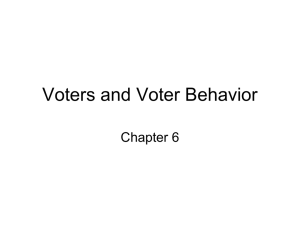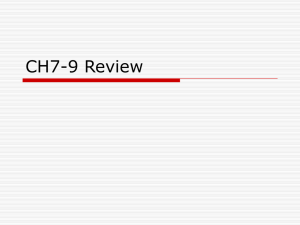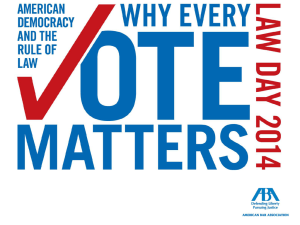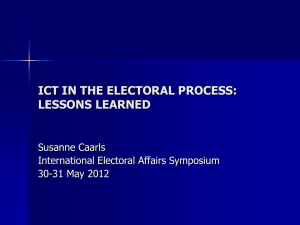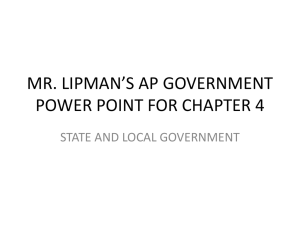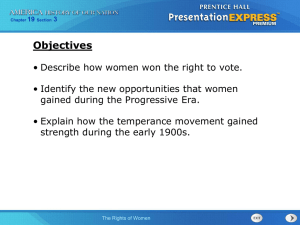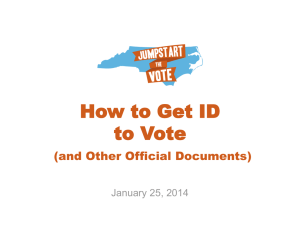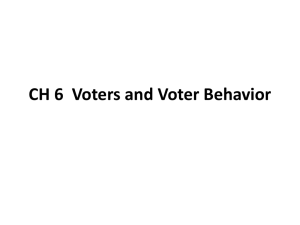VOTE
advertisement
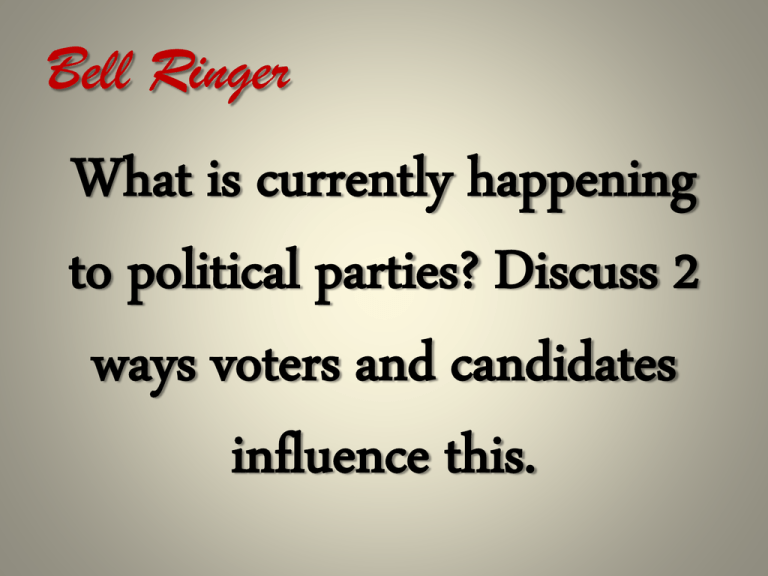
Bell Ringer What is currently happening to political parties? Discuss 2 ways voters and candidates influence this. Exit Ticket List all of the requirements and the current restrictions for voting. Bell Ringer List the five stages (with the amendments and laws) that extended voting rights. Bell Ringer “Democracy is a form of government by popular ignorance” – Elbert Hubbard. Is Hubbard referring to people who choose not to vote, or to uninformed voters? Could he be referring to both? Explain. Bell Ringer What would you vote for? Write down one new “law” you would like to see change in the classroom. Voting The events of this video occurred 100 years after the Emancipation Proclamation, and 10 years after desegregation laws in the South. 1. Why do you think there was such an obvious disconnect between our country’s laws and the reality of the civil rights struggle? 2. Are laws enough to protect civil rights? Why/why not? http://www.youtube.com/watch?v=-0lD37bq8YI To make democracy work, we must be a nation of participants, not simply observers. One who does not vote has no right to complain. ~Louis L'Amour History of Voting Rights • The Framers of the Constitution left power to set suffrage qualifications to each state. – Suffrage means the right to vote. – Franchise means the same thing! Hooray for synonyms! • The electorate is the voters. • Today, the size of the American electorate is over 200 million people—nearly all citizens at least 18 years of age. It hasn’t always been that way… History of voting: http://www.youtube.com/watch?v=ar7r5aG_B0Y Today’s restrictions: • Mentally incompetent • Convicted felons • Young people (under 18) Past groups disenfranchised: • Women • Poor people • African-Americans • Native Americans • Asian immigrants Universal Voter Requirements: • States decide voter eligibility based on three factors: 1. Citizenship: Most states require US citizenship. 2. Residence: Legal resident of the state for a minimum amount of time. 3. Age: 18 minimum age. Other Qualifications – All states (except crazy ol’ North Dakota) require citizens to register to vote. • Registration is a procedure of voter identification intended to prevent fraudulent voting. – Most states close 30 days in advance *Some allow reg. day of election (ID) – Prevent voter fraud http://www.idahovotes.gov/ Extending Suffrage: 5 Stages 1.1800s: Religious, property, and tax qualifications eliminated. Extending Suffrage: 5 Stages 2. 15th Amendment (1870): Racial minority males can vote (at least, that’s what was intended…) The Civil Rights Act of 1964 The Law • Abolished the use of voter registration or a literacy requirement to discriminate against any voter. • Relied on injunctions—court orders—to enforce the law. • (Jim Crow Poll Test) The Aftermath • The violent response of civilians and police and state troopers to a voter registration drive mounted by Dr. Martin Luther King, Jr. in Selma, Alabama showed that the Civil Rights Acts of 1957, 1960 and 1964 were still not enough to ensure voter equality. http://www.youtube.com/watch?v=00xoj zOYdz8 Extending Suffrage: 5 Stages 3. 19th Amendment (1920): Women can vote Women’s suffrage Anti-Suffrage Propaganda: Anti-Suffrage Arguments 1. Women would be corrupted by politics and chivalry would die out 2. If women became involved in politics, they would stop marrying, having children, and the human race would die out (seriously, no more humans!) 3. Women are emotional creatures, and incapable of making a sound political decision. Extending Suffrage: 5 Stages 4. 1960s: – The Voting Rights Act of 1965 guaranteed the right to vote for minorities. – The 23rd Amendment (1961) granted citizens of the District of Columbia the right to vote for presidential electors. – The 24th Amendment (1964) eliminated the poll tax. Extending Suffrage: 5 Stages 5. 26th Amendment (1971): Voting age is 18. Bell Ringer Do you believe that Tuesday is a good day to vote? Why or why not? Explain. http://www.youtube.com/watch?v=UFqln0eyyHM • religious tests • property qualifications • literacy tests • poll taxes • gerrymandering Abolished by the 24th Amendment Laws enacted by seven Southern states between 1895 and 1910 to deny suffrage to American blacks; it said that anyone who had been able to vote before the 15th amendment, and their descendants; would be exempt from educational, property, or tax requirements for voting. Abolished by The Voting Rights Act The practice of drawing or altering the boundaries of a constituency or congressional district in a way that affects the vote. Voter Behavior Voter Behavior • American electorate is about 200M – Only about 50 to 55% vote • Even less vote in congressional elections, especially off-year – This year, only 36% of eligible voters cast their ballot! Lowest since WWII. • Millions of nonvoters among voters – Nonvoting voters: People who can vote but don’t – Ballot Fatigue: Voters who complete only part of the ballot reasons people don’t vote 1. Lack of interest (#1 reason) 2. Distrust politics/politicians 3. Cumbersome election process 4. “Time zone fallout” hurts west coast 5. Believe vote doesn’t matter Cannot voters (20M) • 12M resident aliens - live somewhere besides residence • 5M are ill or physically unable • 2 to 3M travel unexpectedly • 2 M who are in jail or prison • 500,000 in mental institutions • 100,000 don’t b/c religious beliefs Voters • Those most likely to vote: – Higher level income, education, job – Long term resident – Strong party identity • More competitive elections increase turnout Factors that influence voters 1. Sociological Factors (social & econ) Personal characteristics – age, race, income, occupation, education, religion Group affiliations – family, co-workers, friends 2. Psychological Factors (perception of politics) View of political parties, candidates & issues



